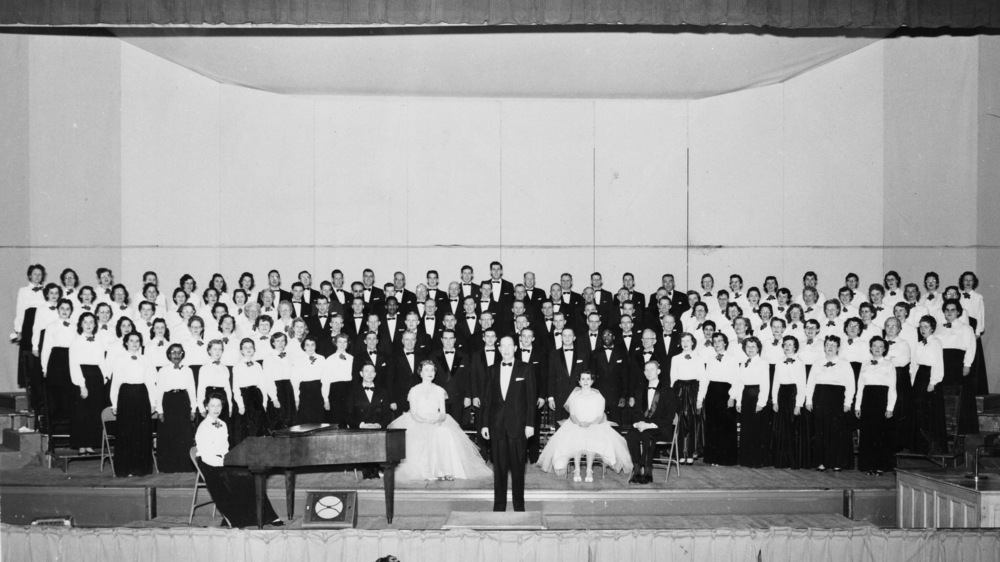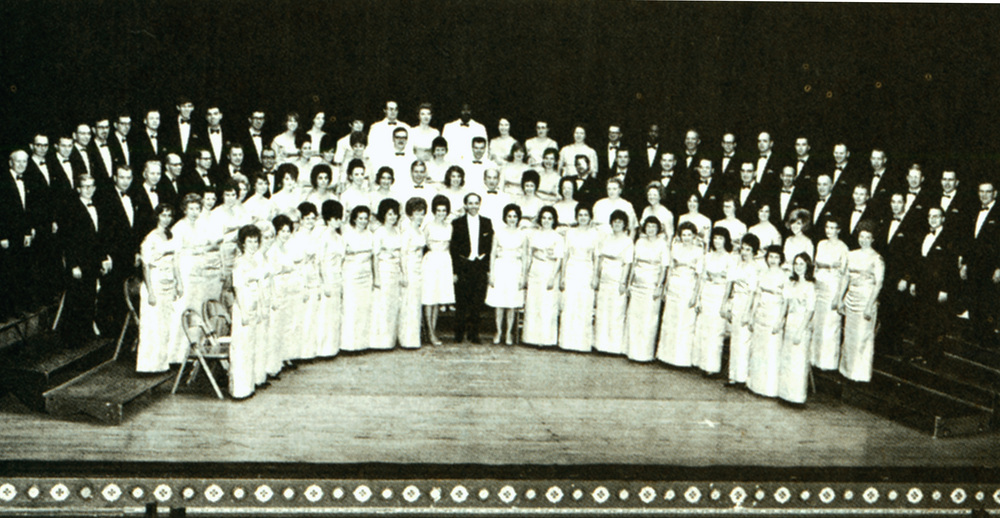Hilmar Grondahl, an advocate for the arts and member of the Oregon Arts Commission, was the classical music critic for the Oregonian for forty-five years. Born on Portland’s Mount Tabor on April 5, 1899, Grondahl grew up in a musical family: both parents sang, his brother played violin, and Grondahl himself played piano and clarinet. After graduating from Franklin High School and Reed College, he was hired as an associate engineer with the Portland city engineering department, where he worked until his retirement in 1964. In his off-hours, he wrote music criticism, first for the weekly tabloid the Spectator and, beginning in 1933, as a part-time staffer for the Oregonian with a starting wage of twenty-five cents per column inch.
Throughout his career as a critic, Grondahl wrote primarily on performances in Portland and elsewhere in Oregon, but he also reported on events in Europe, where he traveled frequently with his wife, Louise (née Corbin). He was an influential figure in Portland’s cultural scene as a board member for organizations devoted to the performing arts and city beautification. He was active in promoting the establishment of summer festivals in Washington Park in 1949, and he gave engineering advice on acoustics for local performances.
In a 1976 essay in the Oregonian, “The Music Critic: a Man with a Mirror,” Grondahl explained that his approach to criticism was essentially descriptive but grounded in intimate knowledge of the subject: “The function of criticism is to hold up a mirror to what has been composed or performed and to the performance. . . . The critic’s report aims to be informative, to cut through what otherwise might be confusing or distracting to the heart of the occasion, to clarify and crystallize impressions for those who were on hand for the event, and to give an intelligible report to those who were not.” Given the vagaries of personal preference and individual interpretation, however, critical evaluations differ, so day-by-day criticism is “a special combination of report and opinion.” Grondahl insisted that the critic is not an artist’s advocate, promoter, or teacher. “The good and the bad have nothing to do with whether the artist has been advanced or set back,” he concluded. “Criticism is good or bad depending on whether the mirror clearly reflects the event.”
Appointed to the Oregon Arts Commission by Governor Tom McCall in 1967, Grondahl served two four-year terms, earning a reputation for promoting excellence in public art, especially community music programs. In 1977, shortly before his retirement from the Oregonian, he received the first Governor’s Awards for the Arts, under Governor Bob Straub. Grondahl died in Portland in January 1984.
-
![]()
Critic Grondahl dies at age 84, Oregonian article, January 14, 1984.
Courtesy The Oregonian.
Related Entries
-
![C. Robert Zimmerman (1918–2001)]()
C. Robert Zimmerman (1918–2001)
Musician, teacher, conductor, and soloist C. Robert Zimmerman inspired …
-
![Portland]()
Portland
Portland, with a 2020 population of 652,503 within its city limits and …
-
![Portland Symphonic Choir]()
Portland Symphonic Choir
Struck by Portland's lack of a civic chorus, C. Robert Zimmerman decide…
-
![The Oregonian]()
The Oregonian
The Oregonian, the oldest newspaper in continuous production west of Sa…
Map This on the Oregon History WayFinder
The Oregon History Wayfinder is an interactive map that identifies significant places, people, and events in Oregon history.
Further Reading
Deane, Early. “Oregonian Critic to Get Governor’s Award.” Oregonian, January 23, 1977.
Grondahl, Hilmar. “The Music Critic: a Man with a Mirror.” Northwest Magazine (May 30, 1976): 18.





